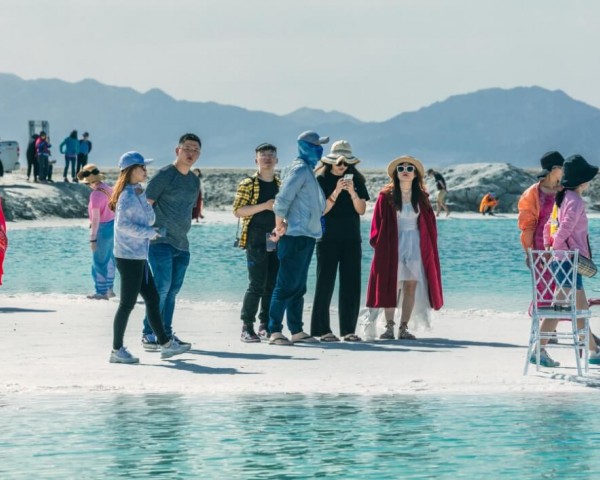
Methods to take care of Tough Clients?
What annoys customers?
- In the northern hemisphere, the month of August is often referred to as “Dog Days “of summer. The name is derived from the fact that it is often too hot, even for a dog, to wander the streets.
- The end of summer is traditionally high season for tourists in large parts of the world. The tourism industry hopes that 2021 will be a time of recovery after last year’s major economic downturn.
- If the vaccines work, 2021 could be a time when planes and hotels are full, and visitors’ nerves are often frayed. This is the month when things that are often beyond the control of the tourism professional often go wrong.
August is a good month to check out what’s angering our customers, how to keep tempers off, and how to stay in control of often uncontrollable situations like weather-related delays. During the tourist season, take the opportunity to test your skills, turn difficult situations into successes and learn how to reduce anger and increase product and customer satisfaction. In order to survive this difficult time in tourism, here are some things to keep in mind:
Remember that in the world of tourism there is always the potential for conflict and customer dissatisfaction.
No matter what you do, there will always be those who want more or are not satisfied with what you do. Visitors pay a lot for their vacation and want to be in control even in situations where no one is in control. Develop scenarios in which the customer has the slightest sense of control. For example, instead of just saying that something cannot be done / fulfilled, try to formulate the answer as a possible alternative.
When offering these alternatives, make sure that the frontline staff remains vigilant and patient. Often a tourism crisis cannot be eliminated by solving the entire crisis, but rather by giving the customer the feeling of having won at least one small victory.
– Know your legal, emotional and professional limits.
There are many reasons people travel, some for pleasure, some for business, and some for social status. For those in the latter group, it is important that tourism professionals understand the power of “social prestige”. These are people who tend not to hear excuses.
They get angry quickly and are slow to forgive. When dealing with them, you know what annoys you and when you reach your limits. Be wise enough to recognize when difficulties are brewing and that help is needed.
-Rule yourself.
Tourism is an industry that challenges our own self-esteem. The public can be both demanding and sometimes unfair. Often times, events occur that are simply beyond our control. During these times, it is important to control your inner fears and emotions.
When your words express one idea and your body language expresses another, you lose credibility quickly.
-Tourism requires multidimensional thinkers.
Tourism demands that we learn to juggle a number of disjointed demands and needs at the same time. It is important that tourism professionals train themselves in the art of information manipulation, event management and personality coping.
In tough times, people on the front lines need to be able to juggle all three skills at the same time.
-Successful tourism centers keep their promises.
Tourism often suffers from over-marketing and promises of more than it can deliver. Never sell a product that your community / attraction does not offer.
A sustainable tourism product starts with honest marketing.
– Successful tourism guides know when to question their instincts. Instincts can often be of great help, especially in times of crisis.
Dependent only on instincts, but can lead to a crisis. Combine instinctive knowledge with hard data. Before making a decision, organize both sets of data logically.
Our instincts can create those rare moments of brilliance, but for the most part, you base your decisions on hard data and good research.
-Successful tourism companies work to tame a difficult situation instead of dominating it.
Tourism professionals have long recognized that confrontations are usually lose-lose situations. Real success lies in knowing how to avoid confrontation. In moments of anger, be prepared to think on your feet.
One way to learn to think on your feet is to develop conflict scenarios and train for them. The better our tourism and front-line personnel are trained, the better they become in crisis management and in making good decisions.
– Be aware of a constantly changing environment and know how to look for opportunities in difficult or unstable moments.
If you find yourself in a confrontation, make sure you deal with it without harming your client’s ego. Challenge your attacker so that the angry customer can see their mistake without losing face.
Remember that a crisis is both a danger and an opportunity. Look for the opportunity in every crisis in the tourism business.
-Try to make an angry customer part of your team.
When trying to get a disgruntled customer, be sure to maintain good visual contact and be positive in both the words you use and the tone of your tone.
Let the customer skip first and only speak after the vent phase is complete. Allowing the client to vent no matter how unfair his or her words may be is a great way to show that you respect him / her even when you disagree.
How dangerous is travel? Ask dr Peter Tarlow! from SaferTourism:
Dr. Peter Tarlow is a co-founder of the World Tourism Network, a global membership organization with membership professionals from the public and private sectors in 127 countries.
Further information and membership at www.wtn.travel
Dr. Tarlow also runs Safer Tourism, a TravelNews Group partner and consultancy. More on www.safertourism.com



